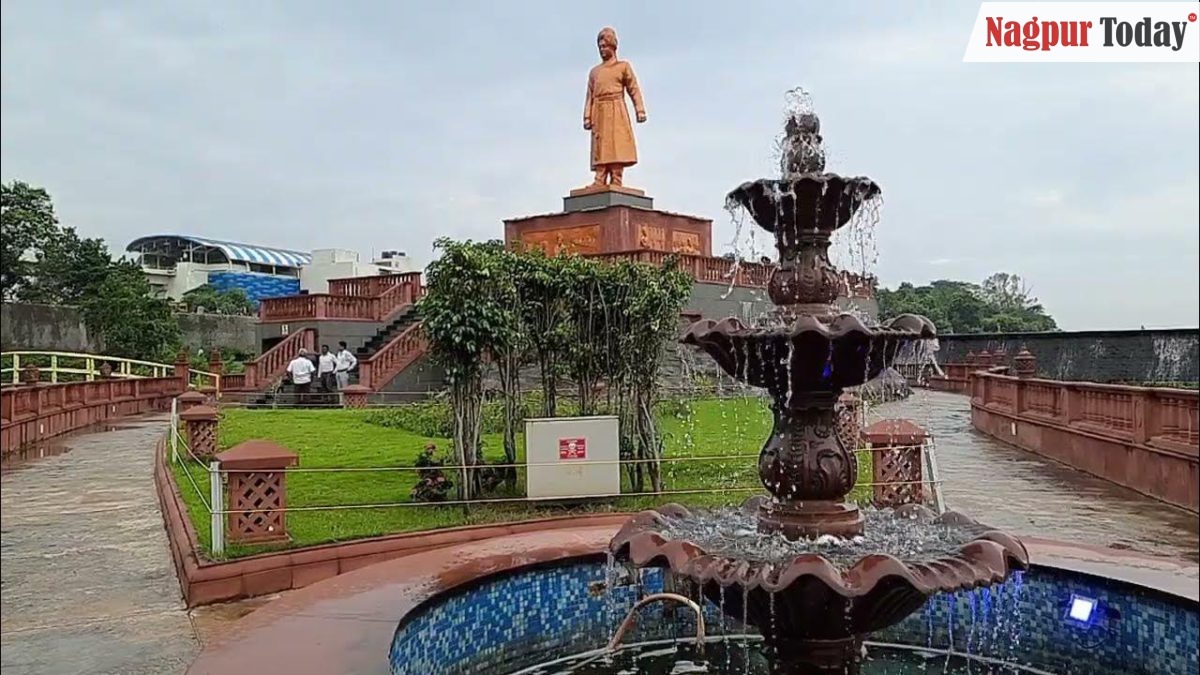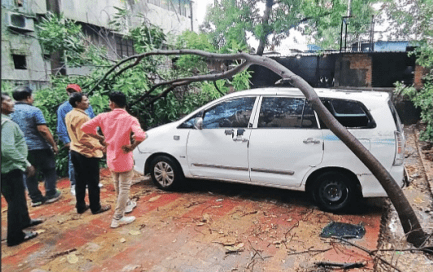Nagpur: In a bizarre U-Turn, the Nagpur Municipal Corporation (NMC) sought to retract its original statement before the Nagpur Bench of Bombay High Court that the location of Swami Vivekananda Smarak constructed at Ambazari Lake banks was in a ‘No Development Zone’.
In an affidavit filed by Additional Municipal Commissioner, Anchal Goyal, through counsel Gemini Kasat, NMC tendered an unconditional apology to the High Court, acknowledging incorrect information on the iconic statue’s location. “An incorrect fact was disclosed on the statue being in a ‘no-development zone’, contrary to the sanctioned development plan for Nagpur,” it stated.
On Friday, May 3, Goyal along with NMC Town Planning Department’s Deputy Director Pramod Gawande, had told the court the statue’s location was in the “no-development zone”, which was contested by petitioner’s counsel, Tushar Mandlekar.
Peeved over civic body’s statement, a division bench comprising Justice Nitin Sambre and Justice Abhay Mantri had expressed concern over construction in a no-development zone, terming it a flagrant violation of Development Control Regulation (DCR). The bench demanded NMC name its officers who allowed illegal structures and suggest remedial measures within a timeframe.
NMC, however, clarified the Deputy Director had re-checked the original sanctioned plan for the Swami Vivekananda Memorial and found its location was not in the ‘agricultural zone’, which is a ‘no-development zone’, but came under ‘recreational zone’, which is a development zone.
“The glaring error in instructing NMC senior counsel Surendra Kumar Mishra was realized by Gawande. Accordingly, a meeting was held on May 5, in which not only NMC’s Town Planning Department, but also the project and water works departments took part. A verification of the record regarding construction of the statue was made, and it was found the documentation was completed in 2016,” the affidavit said.
The civic body informed it made provisions for the statue’s installation and beautification of surrounding development in its 2012-13 budget in view of the 150th-anniversary celebrations of Swami Vivekananda. The location of the statue was proposed by then Standing Committee Chairman.
“NMC’s Development Engineer after preparation of the proposed pedestal plan by a registered private architect and after obtaining permission from the police department, including traffic, submitted the proposal for approval to Maharashtra PWD chief architect on July 25, 2012, which was granted on March 23, 2016,” the affidavit said.
The civic body’s Heritage Conservation Committee, in its meeting on January 19, 2013, also cleared the proposal with certain observations. The then Assistant Director of Town Planning and NMC lawyer gave their report/legal opinion that the area of Mouza Parsodi, on which the statue exists, is not public utility land but in the development plan for recreational facilities.
NMC had also sent a proposal in this regard to the collector, who forwarded it to the State General Administration Department (GAD), which was approved on November 17, 2016. Subsequently, the Collector granted its nod on December 16 in the same year. NMC then awarded the contract for constructing the 20-foot statue and pedestal at the overflow point for Rs 1.42 crore.
“As per DCR for Nagpur City in 2000, Regulation No. 13.3.1.3 states that on land under the recreational zone, development/construction up to 15% of total area is permissible. Therefore, the statue was constructed on land measuring 7,190.90 square metres at Mouza Parsodi. An inadvertent mistake of disclosing the location of the statue in the no-development zone needs to be corrected,” NMC said.
The officially sanctioned development plan sheet contains various references depicting different zones, with the Recreational Zone represented in dark green and the Agriculture Zone in light green. At the time of the hearing, the Deputy Director had with him a cropped part of the development plan depicting the Ambazari Tank and the surrounding area. However, this photocopy of the development plan lacked references.
Relying on the colours presented in the photocopy of the development plan, the Deputy Director instructed the counsel for the NMC that the location of the statue fell within the ‘No Development Zone’. This determination was based on the depiction of ‘Light Green Colour,’ which signifies the Agriculture Zone, where development is not permitted. This information was provided to the court by the counsel.
















